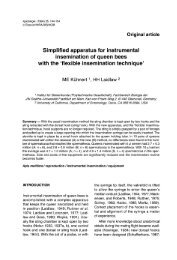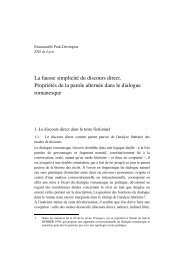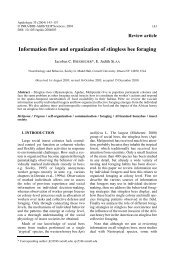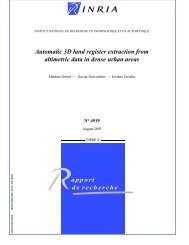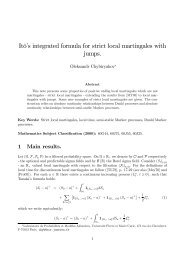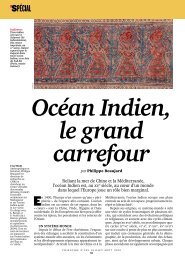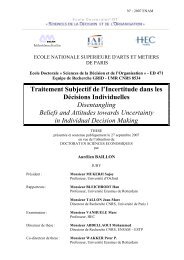Itineraries of Palestinian refugees: Kinship as resource in emigration.
Itineraries of Palestinian refugees: Kinship as resource in emigration.
Itineraries of Palestinian refugees: Kinship as resource in emigration.
You also want an ePaper? Increase the reach of your titles
YUMPU automatically turns print PDFs into web optimized ePapers that Google loves.
halshs-00342285, version 1 - 28 Nov 2008<br />
their transnational activities are strongly determ<strong>in</strong>ed by their departure and dest<strong>in</strong>ation<br />
countries' attitude, <strong>as</strong> mentioned by Östen Wahlbeck (2002: 228): “It can be argued that<br />
the social relations <strong>of</strong> <strong>refugees</strong> create a transnational community not bound by the<br />
geographical borders <strong>of</strong> either the countries <strong>of</strong> orig<strong>in</strong> or the countries <strong>of</strong> settlement. […]<br />
However, there are some significant differences between ord<strong>in</strong>ary migrants and <strong>refugees</strong><br />
<strong>in</strong> the form and content <strong>of</strong> the transnational social relations. It can be argued that <strong>refugees</strong><br />
have a dist<strong>in</strong>ctive relationship with both the country they have been forced to flee from<br />
and the country <strong>in</strong> which they have <strong>in</strong>voluntarily settled.”<br />
The factors that led to the sett<strong>in</strong>g up and development <strong>of</strong> these transnational<br />
migratory networks are the follow<strong>in</strong>g: Until the beg<strong>in</strong>n<strong>in</strong>g <strong>of</strong> the 1980s, the restrictive<br />
legal context which affected the <strong>Palest<strong>in</strong>ian</strong>s <strong>in</strong> Lebanon w<strong>as</strong> counterbalanced by the<br />
density <strong>of</strong> k<strong>in</strong>ship solidarity networks at a local scale - refugee camps and <strong>in</strong>formal<br />
settlements - and the strong presence <strong>of</strong> the PLO. The <strong>Palest<strong>in</strong>ian</strong> <strong>in</strong>stitution provided<br />
work and welfare to the most underprivileged <strong>Palest<strong>in</strong>ian</strong>s. The <strong>Palest<strong>in</strong>ian</strong> national<br />
movement, then strongly structured, also proposed a political solution to the <strong>refugees</strong> by<br />
mak<strong>in</strong>g the "right <strong>of</strong> return" its combat slogan. The dismantl<strong>in</strong>g <strong>of</strong> the PLO and its<br />
geographical dispersion <strong>in</strong> 1982, and more recently the collapse <strong>of</strong> the peace process,<br />
reduced the effectiveness <strong>of</strong> the networks <strong>of</strong> solidarity at a local level. Emigration<br />
became the only solution for many <strong>refugees</strong>, because it made possible an escape from a<br />
situation perceived <strong>as</strong> <strong>in</strong>tractable by most <strong>of</strong> them. Emigrat<strong>in</strong>g w<strong>as</strong> considered by<br />
<strong>refugees</strong> <strong>as</strong> an alternative solution to an <strong>in</strong>cre<strong>as</strong><strong>in</strong>gly improbable return to their homeland<br />
or to a permanent settlement <strong>in</strong> Lebanon <strong>in</strong> an <strong>in</strong>cre<strong>as</strong><strong>in</strong>gly hostile context. This<br />
<strong>emigration</strong> relies ma<strong>in</strong>ly upon k<strong>in</strong>ship networks 10 .<br />
II.4. <strong>K<strong>in</strong>ship</strong> networks and the transnational migration process<br />
10 I will not emph<strong>as</strong>ize here the role <strong>of</strong> village networks, which partly <strong>in</strong>clude k<strong>in</strong>ship networks.<br />
For a more detailed approach on this topic see Doraï (2003a)<br />
8


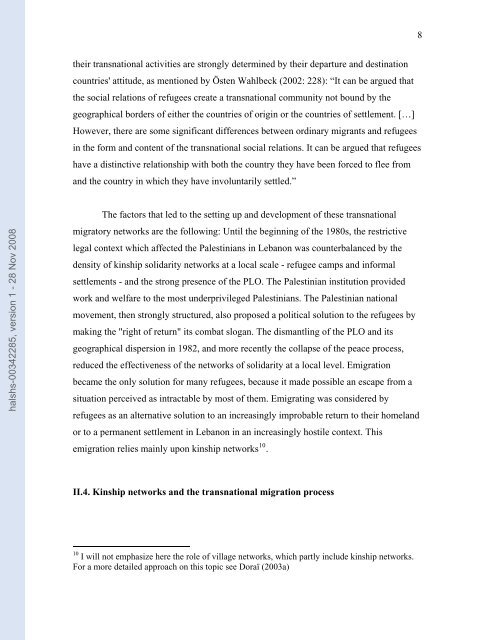
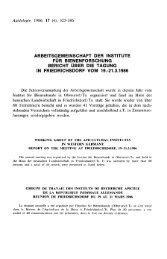
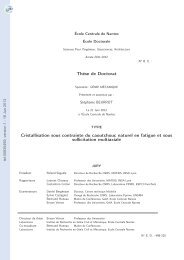
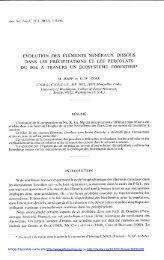
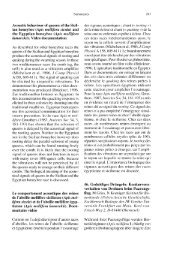
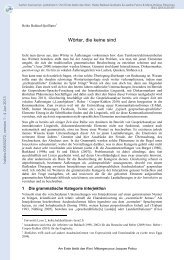
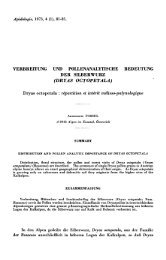
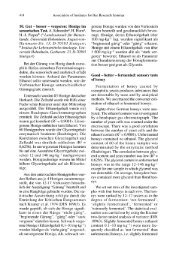
![4 C]-Polyethylenglykol bestimmt, der - HAL - INRIA](https://img.yumpu.com/22454280/1/177x260/4-c-polyethylenglykol-bestimmt-der-hal-inria.jpg?quality=85)
